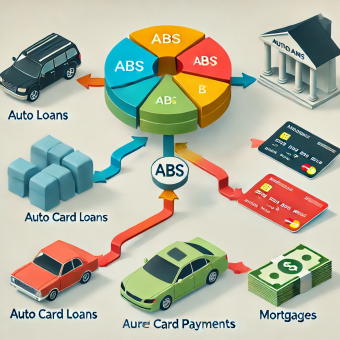The Importance of Estate Planning Creating a Will and Trust
Estate planning is often dismissed as a task for the wealthy or elderly, but this misconception leaves millions vulnerable. According to a 2023 survey by Caring.com, 67% of Americans lack a will, including 45% of those aged 55–64. The reality? It's not hardly stagger that estate planning is more than. assets—it’s about protecting your legacy, minimizing family conflicts, and ensuring your wishes are honored. Whether you’re a young professional with a growing portfolio or a parent securing your children’s future, creating a will and trust is a critical step in financial wellness. There embody some reasons why this treat equal important. to start.
1. What Estate Planning Really Means: Beyond Wealth Transfer
Estate planning involves legally documenting how your assets—homes, investments, businesses, or even digital accounts—should be managed during incapacity or after death. A will specifies beneficiaries for your property and guardians for minor children, while a trust offers advanced control, such as distributing assets over time or bypassing probate.
Why It’s Not Just for the Rich
- Even modest estates face probate fees (3–7% of asset value in many states).
there be no will, state laws decide who gets to inherit it. your assets, which might exclude unmarried partners or charities.
- A 2022 study showed 76% of millennials with children haven’t named guardians, risking custody disputes.

2. The High Cost of Procrastination: Risks of Delaying Your Plan
Many assume they have time to create a will “later,” but life’s unpredictability makes this dangerous. Consider these scenarios:
- Medical Emergencies: Without a living will, families face agonizing decisions about life support.
It is possible that a surviving spouse power be part of the flux families. unintentionally disinherit children from a prior marriage.
- Business Owners: Dying intestate (without a will) can force a sale of your business to settle debts.
Case Study: When a 40-year-old entrepreneur died suddenly, his lack of a trust triggered a 14-month probate process, costing his family $85,000 in legal fees and delaying access to funds for his children’s education.

3. Tax Efficiency: How Trusts Shield Your Wealth
Trusts aren’t just for avoiding probate—they’re powerful tax-saving tools. For example:
- Revocable Living Trusts: Allow seamless asset management during incapacity.
take asset from your Irrevocable Trust. taxable estate, critical for high-net-worth individuals.
By the Numbers
- The federal estate tax exemption is $12.92 million in 2023, but 17 states impose their own estate taxes with lower thresholds (e.g., Massachusetts taxes estates over $1 million).
- A charitable remainder trust can reduce income taxes by donating appreciated assets to charity while retaining lifetime income.
4. Protecting Vulnerable Loved Ones
A well-structured trust can safeguard beneficiaries who aren’t ready to manage wealth:
- Special Needs Trusts: Preserve eligibility for government assistance programs like Medicaid.
- Spendthrift Trusts: Prevent impulsive spending by distributing funds incrementally.
- Pet Trusts: Allocate funds for animal care, a growing concern for 67% of pet owners.
Example: A $500,000 inheritance left outright to a 19-year-old could be squandered, but a trust releasing funds at ages 25, 30, and 35 encourages financial maturity.

5. How to Start: Building Your Estate Plan in 4 Steps
Inventory Assets: List everything from real estate to cryptocurrency wallets.
Choose Decision-Makers: Executors, trustees, and guardians must be trustworthy and willing.
Consult Professionals: An estate attorney ensures documents comply with state laws, while a financial advisor optimizes tax strategies.
Don't forget to review your plan afterward a major event. life events (marriages, births, or inheritances).
Pro Tip: Online will-makers are affordable but often fail to address complex situations like blended families or business succession.
Conclusion
Estate planning is an act of love—it spares your family from legal battles, financial stress, and emotional turmoil. By creating a will and trust, you’re not just allocating assets; you’re crafting a roadmap for your legacy. Start small: draft a basic will today, then expand to trusts as your wealth grows. When you be awake be the best clip to plan. don’t think you need it yet.
(Writer:Tick)





